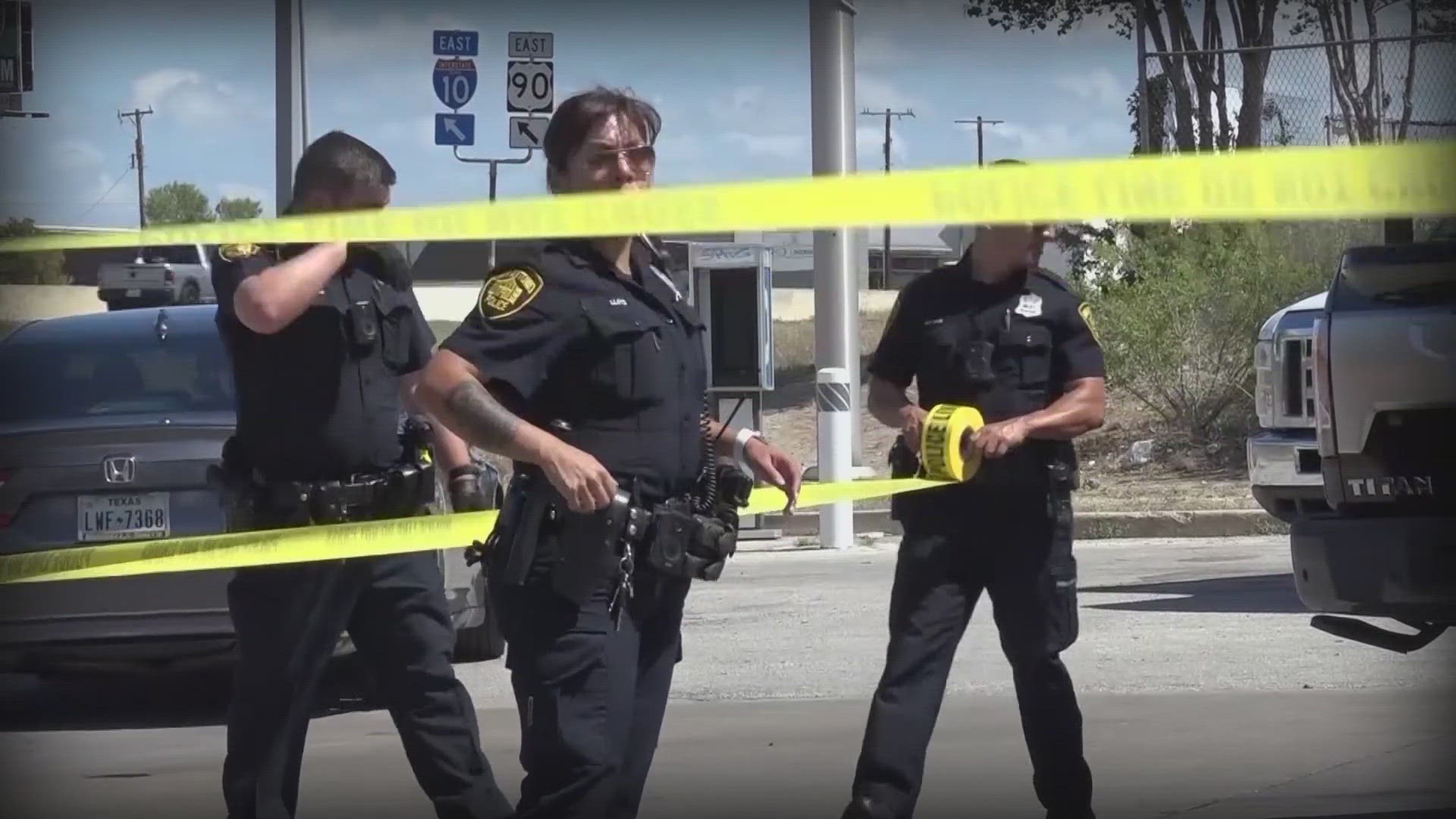SAN ANTONIO — Mission and workflow are the keys to understanding why there is a backlog at The Bexar County District Attorney's Civil Rights Division.
"Even though we're civil rights, our tools are the Texas penal code and the Texas code of criminal procedure," Daryl Harris said. "We're limited to finding criminal culpability."
Harris was a veteran prosecutor hired by former District Attorney Susan Reed.
He was approaching 20 years in the office when current District Attorney Joe Gonzales asked Harris to helm a unit to review officer-related shootings in Bexar County following cries for reform after the murder of George Floyd.
"The opportunity to help define how this process occurs in the city that we decided to live in and stay in was an opportunity we couldn't pass up," Harris said.
Historically, all officer shootings got reviewed through the DA's white-collar division. Harris and a team of five, including investigators, a prosecutor, an advocate, and an intern, handle the cases.
Gonzales mandated officer-involved shootings, period--deaths, injuries, or any time a weapon gets discharged in a case at an officer or person. The staff also examines claims of excessive force, deaths at the Bexar County Detention Center, including suicides, and people who die in the custody of law enforcement.
"We can go as far as we need," Harris said.
Harris said they walked in the door on January 26, 2021, with 30 cases, and the cases kept coming in.
"The first day, this group sat down with the elected (Gonzales) to look at some body cam video of an incident another shooting occurred that day," he said. "And the day after."
Nicholas Mahrou said the cases come to them. Every law enforcement agency in Bexar County conducts an internal investigation before handing over their findings to the Civil Rights Division. Mahrou helps take the cases before a grand jury.
"We can't just go in there and say, 'officer a shot citizen b, and that person was justified,'" Mahrou said.
The prosecutor said they were not out to get police. But the citizens need to know the Civil Rights Division did not get created to cosign police shootings either.
"It's not just that SAPD's investigating their own cases or BCSO's investigating their own cases," he said. "There is this impartial third party--us."
The division makes every scene and prosecutes the cases where they get indictments. There are times, they said, during proceedings when one of them must leave for a shooting scene.
They have five cases under indictment, including:
- Three San Antonio police officers are accused of murdering a woman during a mental health crisis.
- A former SAPD rookie officer was arrested for shooting an unarmed teen in a fast food restaurant parking lot in October 2022.
- Two terminated officers granted a mistrial in an excessive force case where a man got beaten for trying to elude a traffic stop.
Harris said as of mid-September, his division had reviewed and resolved 31 deaths and four injuries caused by officers. The backlog during the first ten days of October was 116 cases.
That statistic does not include the five shootings in late August and early September that injured six officers and ended the lives of three suspects. Nor does it account for a shooting where two officers were ambushed from a second-floor bedroom in October.
"We've been busy," Mahrou said.
Harris said the outcomes of the shootings they've investigated have not been fueled by race.
"But to the degree that all sides act, react, counteract," Harris said. "If those are still part of our societal ills, then you can't divorce those when we have these interactions."
Mahrou said he is still amazed at how deeply interested people have become in police shootings.
Harris believes he got more confirmation than surprise. Examining the cases reveals a lot of expectations on segments of society like the police.
"We've got gaps in our social fabric, and they most often materialize when kids bring it into the classroom," he said. "Officers see it on the street, and we expect those groups of people to be able to have all the answers all the time. It's impossible."

